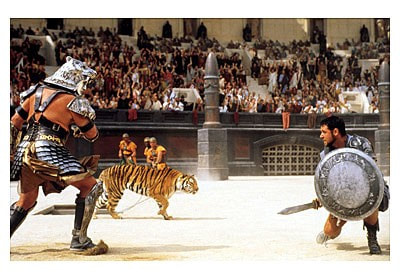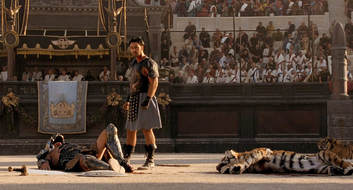A lengthy screed about the latest shooting.
by Meg Langford
Among others. Among many, many others:
A fifteen year old boy is dead, shot down as his friends looked on in horror, because a seventeen year old with a gun decided that was how it was going to be. The gun gave him the power to take life, and he did it. On the edges of America, both physically and literally, death was in the air that day.
And speaking of things floating in the air . . .
There is a word out there now, floating right in front of us, lurking on the edges of our brains, hovering unspoken in the air. It is on the lips of private citizens and public officials, of politicians and pundits. Everybody is afraid to say it.
That word is: Etymology. That’s right. Etymology. Admit it. You want to say it, but you are afraid. So afraid, am I right?
For those of you who may be a bit foggy about the definition, Etymology is, “The study of the origin of words and the way in which their meanings have changed throughout history.” (Not to be confused with entomology, by the way, which is the study of bugs.) I can see that some of you are wondering how and why “etymology” might hold the key to changing America after yet another ghastly school shooting. Here is why. And I am only going to say it once, so listen up: WE CANNOT CHANGE ANYTHING WITHOUT TRULY COMMUNICATING, AND PEOPLE DON’T SEEM TO KNOW WHAT THE FUCK WORDS ACTUALLY MEAN ANY MORE. It seems that virtually every great mind that has graced this sweet, dirty Earth of ours has had something to say about the power of words:
“Better than a thousand words is one word that brings peace.” -The Buddha
“Words are, of course, the most powerful drug used in mankind.” -Rudyard Kipling
“We have too many high sounding words, and too few actions that correspond with them.” -Abigail Adams, wife of the second President of the United States, John Adams.
“It makes my heart sick when I remember all the good words and broken promises.” -Chief Joseph, leader of the Nez Perce tribe who, according to his doctor, died of a broken heart after being exiled from his land.
As far back as the late 1700’s, that august man of letters, Noah Webster, father of the famous dictionary that we all grew up with, (and had such fond memories of, from when we asked a question and our parents shouted “Look it up!”) had much to say about the importance of the true meaning of words. In fact, when asked by the notable colleagues of his day why he chose to spend several decades of his adult life laboriously compiling a 70,000 word dictionary--the first of its kind, really--Noah Webster was crystal clear in his reply: “WE CANNOT CHANGE ANYTHING WITHOUT TRULY COMMUNICATING, AND PEOPLE DON’T SEEM TO KNOW WHAT THE FUCK WORDS ACTUALLY MEAN ANY MORE.”
And why should we be surprised that people don’t know what… well, you know what they don’t know. I just said it twice. Words and stuff. But in a world where governments and their military branches and their police forces have created bone-chilling lists of euphemisms to describe some of the most horrific behaviors in history, is it any surprise that “politicize” seems mild by comparison. Just look at this list of words that have been euphemistically bastardized, etymologically speaking: Terminological Inexactitude, Plausible Deniability, Paradiastole, Conversion Therapy, Strategic Ignorance, Collateral Damage, Enhanced Interrogation, Terminate with Extreme Prejudice, Ethnic Cleansing, Corrective Rape, and Final Solution.
Etymology may seem to be an obscure reach for approaching something as overwhelming as school shooting, but it isn’t. Not really. Because we only need to look at the origin and meaning (the etymology) of the word “politicize” to realize that it is not the dirty word that Republicans are making it out to be. “Politicize” means, of course, to make something political. And politics, contrary to popular belief, is one of the nobler concepts conceived of by the mind of humans. “Politics” is defined as, quite simply “of, for, or relating to citizens”. It has a long and noble history, deriving from the Latin “politicus” via the Greek “politikus”. To put it quite simply, the word “politicize” means “to cause an activity to become political in character.”
So where is the problem?
Seventeen human beings are shot down, and while it could not be more personal for those who loved and cherished the dead, what could be a better way to honor their memory than by taking it from the level of a personal loss to a public one, and strategizing in the public forum about how we might prevent this from happening again? Of course this matter must become political. Nothing could be more obvious. And it must become political immediately.
Oh, and for those politicians whose second response, after nattering on some hollow clichés about the victims, is to thank the first responders--well, the kindest thing you could do for those first responders is to design and implement policies which would minimize the number of times that police, EMTS, firemen, doctors, and nurses have to put their hands on children who are bleeding to death. Within the first few hours after a shooting, there is absolutely no reason that we cannot pray AND thank the first responders AND start talking about prevention. Seriously, friends, any politician who can stare at pictures of the dead bodies of children, and then say we should NOT discuss preventative POLICIES (POLITICS), because it is just “too soon” ought to have their mouths washed out with Tide Pods.
The pundits are understandably furious at the politicians, and speaking with a noticeably unvarnished eloquence. Jeffrey C. Billman, of Indyweek, articulates the popular rage: lf there’s one phrase I hate more than any other, it’s that we shouldn’t “politicize a tragedy,” or that “it’s too soon to talk about gun control.” Right now the whole country—the whole world—is focused on this dreadful scene. Seventeen dead. At least a dozen more wounded, some with life-threatening injuries. An entire school, and an entire community, dealing with the aftermath. There’s nothing special about Parkland, in the sense that there’s no reason something like this couldn’t happen anywhere. And if you want to effect change, if you want to at least try to make this school shooting the last school shooting, now is the time to act, to press your case, while everyone is thinking about it. There’s a reason the NRA and other gun groups want to perpetually put this conversation off. But there needs to come a reckoning, and it needs to come now. So yeah, you’re goddamn right I’m going to politicize this tragedy. I desperately hope that you will, too. That’s the only way we can hope to stop it from happening again and again and again and again.
And Esquire Magazine’s Dave Holmes captures the true meaning of waiting to act in his incident autopsy:We are always told not to politicize. To honor the memory of the recently fallen, to respect the families whose children won’t be coming home from school, by doing nothing. So let me say this as clearly as possible: Doing nothing is also a political act.
Waiting until you are more sanguine about another pile of dead children is a political act. Our country leads the world in this epidemic, and everything every single one of us does about it from right now until the moment we put our heads on our pillows tonight is a political act. There, just now, whatever you just did, you politicized it.
These teenagers, these beautiful, bewildering teenagers who just yesterday sat barricaded in their classrooms, hearing their friends get murdered, and searching for le emoji juste to express their emotions because what else were they to do, were doing their jobs.
God dammit, when are we going to start doing ours?
And in case anybody (read: NRA and its evil minions) is wondering precisely what is our parenting task, when faced with these mass shootings, Mr. Holmes sums that up with a chilling succinctness as well: “ Our job, as adults, as the caretakers and stewards of the world they are actively trying to figure out, is to keep them from getting shot the fuck up in the middle of algebra.”
And now, a few words for the Conservatives out there: you’ve read this far. Thank you. But since you have this thing about politicizing, let’s stop for a moment and talk about the biggest politicizer of all, when it comes to gun issues. I am referring, of course, to Harlon Carter. Harlon Carter is the seventeen year old killer that I described in the first paragraph of this blog. Harlon Carter was not only the capo di tutti capi of the NRA during the 1970’s and 80’s, he was also the vigilante kid who gunned down a fifteen year old Latino kid because the kid would not come to Carter’s house at gunpoint to be questioned about some imagined slight.
An archived New York Times article offers us a glimpse of the murder and subsequent trial: According to the trial transcript, Ramon Casiano was killed in the afternoon of March 3, 1931, shortly after young Carter returned home from school to find his mother, Ila, upset. Three youths had been loitering outside all afternoon, Mrs. Carter testified that she told her son, and she believed that they might know something about the theft of the Carters' automobile three weeks before.
Telling his mother, according to his own testimony, that he would ''see if I could not get the boys to come to the house and talk to her,'' the son picked up his shotgun and walked out of the house. What happened next was the subject of dispute, but within minutes Ramon Casiano lay dying, a two-inch shotgun wound in the right side of his chest. On March 21, 1931, young Carter was indicted by a Laredo grand jury on charges of murder with malice aforethought.
The chief witness for the prosecution was 12-year-old Salvador Pena,who testified that he was returning with Ramon and two others from a nearby swimming hole when ''the American,'' as he called Mr. Carter, ''asked us to go up to his house.'' 'We asked him why,'' Salvador remembered, ''and he said, 'Oh, go to my house.' '' According to other witnesses, Ramon, the oldest and largest of the four boys, replied, ''Hell, no, we won't go to your house and you can't make us.''
According to the transcript, 12-year-old Salvador testified: ''Ramon took out his knife and asked him, 'Do you want to fight me?' The American began to curse and Ramon also cursed back at him. Then the American aimed at Ramon, towards the breast or bosom. Ramon told him not to do it, and put aside the rifle with his hand. Then Ramon stood about half a pace backwards and laughed. Then the American asked him if he thought that he was not going to use the rifle, and fired at him.''
Harlan was later charged with murder. But given that this was Texas, in the first part of the last century, are we surprised that after nearly two years of drama, all charges against Harlan were dismissed? Fast forward several decades, to when the Justice Department issued a report following an investigation enumerating “various allegations” of wrongdoing by Carter, including one “investigation into the disappearance of 50,000 rounds of government ammunition, which Carter stole, with the sole intent of converting this property to his own use.” The missing ammo was never found, though, so charges were never filed. Fast forward to the 1970’s, when Harlan Carter essentially took over the NRA in a bloodless coup, and transformed it from the useful hunting club and gun training organization that it had been since the Civil War, into the lobbying juggernaut we have come to fear and hate.
So here are the facts: when it comes to “politicizing”, since Conservatives seem to find that such an abhorrent word this week, well, we need to point out that the first person to politicize guns was this former delinquent who killed another kid--and, it is fairly clear, got away scott free only because he was a white boy living in a border town in 1931 Texas, and that victim happened to be dark skinned. It was Harlon Carter who took the NRA from being a reasonable, middle-of-the-road hunting club and instruction type of organization, to one of the most powerful lobbying groups in the county. NOTE TO CONSERVATIVES: This is called “politicizing.”
But if I may return to my original point--when it comes to school shootings, there is nothing basically wrong with politicizing an issue.
The personal becomes public.
And while it may seem a bit inappropriate or obtrusive at times, the bald fact is, most family members mourning the death of a loved would insist that the private became public, if it means that the victim did not die in vain.
The personal becomes public.
Hell, Trump did it himself just a couple of weeks before the Florida school shooting, when he stopped his own State of the Union speech to introduce the parents of a child killed by MS-13. And do you know what? That particular act of politicizing wasn’t a bad one. MS-13 gang members are among the most violent criminals in the country, and if Trump wants to make some point about how illegal immigrants who commit murder should be deported, I am with him 100%. (This, of course, was not his point, nor was it his goal. He has demonstrated his goal regarding undocumented immigrants, in the days following that speech.)
My point is this: not only is it wise strategy to politicize--for the private to become public--it is imperative. Anybody who survived first year Latin or a basic rhet crit class (“ethos, pathos, logos”) knows that without an appeal to the emotions, a speech full of data and proof and statistics will bore its listeners to tears. And no change will ever follow. Nothing. Never.
For those of us trying to keep some logic and mental discipline in the post-Stoneman Douglas High School shooting, it is worth noting that Republicans are indulging in that most base of rhetorical fallacies, the False Dichotomy. Thousands of citizens--parents, protesters, and persons from both political parties--are calling for a ban on the AR-15. And how do Republicans in Congress respond? They invoke the sacredness of the Second Amendment. This is absurd. Almost nobody is calling for the unilateral banning of guns; the Second Amendment is not threatened. The right of citizens to keep and bear arms is not in play. Just semi-automatic weapons. And while there are some peaceful souls, who will not rest until nobody owns a gun, the fact that the GOP will not even mention the possibility of banning the AR-15 in the days following this latest shooting shows that they are not even willing to consider peaceful compromise. They are sending dog whistles to the alt-right, even as they take millions from the NRA.
Marco Rubio, for example, Florida’s Republican Senator. His response following this tragedy was to talk about the preciousness of the Second Amendment: "And I happen to oftentimes point to the Second Amendment and say it's the Second Amendment, right after free speech, which tells you how important it was to those who wrote those words." And not surprisingly, Rubio stonewalled and stammered when asked by a survivor of the Stonemanl shooting if he would now refuse NRA campaign contributions.
And governor of Florida Rick Scott has earned himself an impressive “A+” from the National Rifle Association’s grading system, because Scott has rolled back gun regulations so that there are fewer of them in his state, and opposed background checks, among other pro-NRA rabidities.
And as for Ted Cruz, Republican senator for gun totin’ Texas, the ferret-faced Frank Burns of Congress--can anybody forget when Cruz, in one of his creepy campaign ads, wrapped some bacon in foil on the end of his AR-15 and cooked it by firing the weapon repeatedly? Cruz has stated repeatedly that he does not want semi-automatic weapons ban, citing the sanctity of the Second Amendment.
Well, I have news for you, Mr. Cruz. A higher authority than you has spoken. Nobody less than that legendary conservative Justice speaking for the Supreme Court of the United States of America has come out in favor of assorted forms of gun control. Specifically, Justice Scalia had this to say: “Like most rights, the right secured by the Second Amendment is not unlimited.” It is “not a right to keep and carry any weapon whatsoever in any manner whatsoever and for whatever purpose.” And Scalia also said this: “Nothing in our opinion should be taken to cast doubt on longstanding prohibitions on the possession of firearms by felons and the mentally ill, or laws forbidding the carrying of firearms in sensitive places such as schools and government buildings, or laws imposing conditions and qualifications on the commercial sale of arms.”
So now, Ted, you can go back to being a butt plug in a suit.
And by the way, I do not mean that as metaphorically as it may sound. I truly believe he is that thing, stopping a torrent of shit from flowing out of the toxic body politic, as it surely would, if Ted Cruz were not there to stonewall and obfuscate.
Let’s face it, these talking orifices would love it if we would just all mourn privately until the matter is forgotten, and the Florida shooting headlines replaced by some ghastly story about our country’s latest embarrassment.
But it would appear that the students who had to witness their friends and teachers die are not going to let this matter die. Emma Gonzales and Cameron Lasky, for example, are clearly going to set the world on fire, and they are going to start by doing everything in their power to start with changing the gun laws. Their heartfelt speeches have gone viral--and folks, their articulate passion is the reason “viral” was invented.
And the reason that this matter needs to be “politicized”--as in, the personal tragedy becomes out public shame--is because of the following list: none of you reading this know who the hell these people are, nor do their names alter your mood, impact your day, or impel you to action: Jack Beaton. Sonny Melton. Kelly Brewster. Shannon Johnson. Jonathan Blunk. Alex Teves. Matthew Robert McQuinn. Corey Tyler DePooter. Who are these people? Who cares? In a nutshell--we’ve all forgotten about them, and moved on. Let’s not let that happen in Florida. Let’s not let that happen ever again. This longform is not meant to take on the issue of gun control in its entirety; the debate is already playing out in the public forum.
FUN UPDATE: There is a President’s Day Sale on Bumpstocks! Can you say Lollapalooza?
There is a movement out now called “Politicize my Death,” and it is a stroke of genius, given the circumstances. It essentially is a petition, or a database, if you will, in which people can agree, before they are gunned down, in the increasingly probable event that they will be gunned down, that their death is to be used to “politicize” the issue of gun control, as soon as the names of the dead are actually known … because in a Trump-heated world whose climate has created a daily tsunami of headlines, if you don’t politicize the names and lives of the dead while the corpse is still warm, the world will have turned its attention to the next drama: the next terrifyingly iminent shooting. But where will it be? How many victims? Will someone you know be gunned down while studying calculus or gerunds?
I gotta tell you, sometimes kids and their phones make me crazy. I mean, do they never look up from these things? But I am not against them owning them and using them, and the Florida shooting indicated why: many of us would never have understood, on a truly visceral level, the terror and the tragedy of what happened in that school that day, had it not been for cell phones. And let me warn you, Mr. Trump, Mr. Rubio, Mr. Scott, Mr. Cruz, et al. . .one day, and very soon, I can guarantee you this: some kid with a smartphone is going to crawl over to his dying classmate, and that classmate, riddled with bullets and drawing their last breath, will sputter through their blood and their tears: “If any grown-up sees this ...why did you let this happen?”
And that will go viral.
And then, sirs, your political careers will be over. Is that politicized enough for you?
In the end, we will remember not the words of our enemies, but the silence of our friends.” -Martin Luther King
It is in our lives, and not our words, that our religion must be read.” -Thomas Jefferson
“No matter what people tell you, words and ideas can change the world.” -Robin Williams




 RSS Feed
RSS Feed